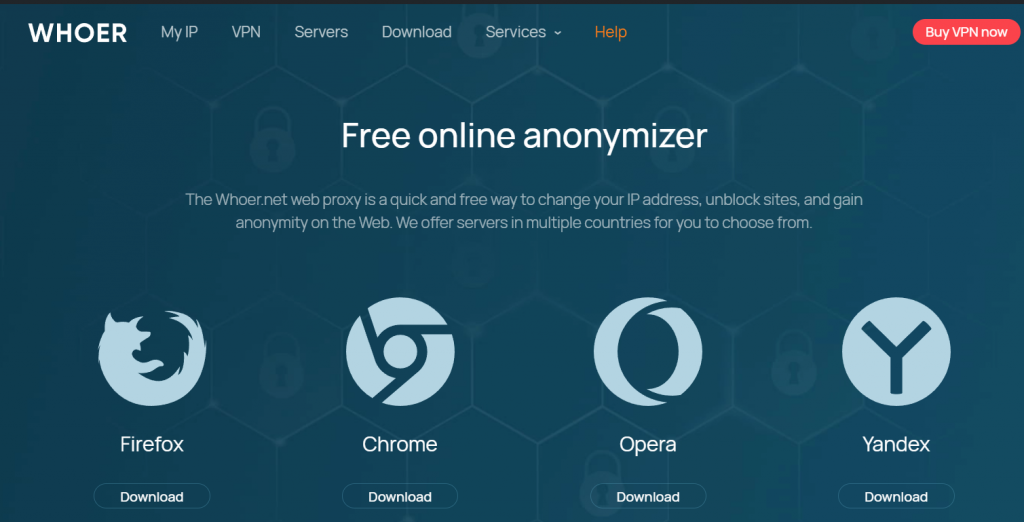Strategic Use of Proxies in Payment Gateways for Secure and Efficient Transaction

Understanding the Link Between Proxies and Payment Gateways
In the digital economy, secure and seamless online transactions are the foundation of trust between businesses and customers. Payment gateways serve as the bridge between merchants and financial institutions, ensuring that payments are processed efficiently. At the same time, proxies play a crucial role in strengthening online security, masking sensitive information, and enabling businesses to operate across global markets without friction. When combined strategically, proxies for payment gateways create an environment where privacy, speed, and trust are maintained throughout online transactions.
A payment gateway is responsible for authorizing and facilitating payments in real time, ensuring that customer data is encrypted and transmitted securely to banks and processors. However, the increasing sophistication of cyber threats and fraud attempts makes relying on gateways alone insufficient. This is where proxies complement the system by adding an additional layer of anonymity, fraud prevention, and regulatory compliance.
Why Businesses Need Proxies for Payment Gateways
Online payments involve a high volume of sensitive data, including card numbers, billing addresses, and authentication credentials. Hackers target these transactions to exploit vulnerabilities, which can damage both customer trust and a company’s reputation. Proxies for payment gateways protect transactions by rerouting traffic through secure servers, making it difficult for malicious actors to trace user activity or intercept confidential data.
Beyond security, proxies also enable businesses to expand globally. Payment gateways sometimes restrict transactions based on geographical location due to compliance issues, fraud risks, or regional limitations. With proxies, companies can bypass such restrictions, test gateways in different regions, and support customers from around the world without experiencing unnecessary payment failures.
Moreover, proxies provide scalability for online businesses. E-commerce platforms processing thousands of payments daily require uninterrupted operations. By distributing traffic loads across proxy servers, businesses can avoid bottlenecks, reduce downtime, and ensure smoother payment experiences for customers.
Enhancing Security in Online Transactions
Security is the primary reason why proxies for payment gateways are increasingly adopted by businesses. Cybercriminals often use techniques such as phishing, man-in-the-middle attacks, or IP tracking to gain unauthorized access to payment details. Proxies safeguard against these risks by hiding the original IP address of users and encrypting communication channels.
For merchants, this means customer payment details are better protected, reducing the likelihood of fraud-related chargebacks or disputes. For customers, the use of proxies translates into confidence that their personal and financial information remains secure during every online transaction.
Additionally, proxies assist with fraud detection systems. Payment gateways often use algorithms to analyze transaction behavior and detect anomalies. By integrating proxies, businesses can simulate multiple transaction environments to test fraud detection systems, ensuring they are robust enough to identify suspicious patterns without rejecting legitimate transactions.
Proxies and Regulatory Compliance
Compliance with financial regulations such as PCI DSS (Payment Card Industry Data Security Standard) is mandatory for businesses processing payments online. Proxies support compliance by offering secure channels for transmitting sensitive information, thereby reducing exposure to potential breaches.
In regions with strict data residency laws, companies must ensure that customer payment data is processed within specific geographic boundaries. Proxies make it possible for businesses to route transactions through servers in required jurisdictions, thus adhering to local regulations without disrupting service quality. This is particularly important for global e-commerce platforms and financial service providers.
The Role of Proxies in Global Expansion
As businesses scale internationally, they face challenges such as payment gateway restrictions, regional blacklisting, and limited support for certain currencies. Proxies for payment gateways help overcome these hurdles by masking the origin of transactions, allowing businesses to appear as though they are operating locally.
For instance, an e-commerce company based in Asia may want to test how its payment gateway functions in Europe or North America. By using proxies, the company can simulate customer interactions from different regions, ensuring that payment methods are functional and user-friendly across borders. This capability allows businesses to optimize user experience and maximize sales opportunities in multiple markets.
Improving Transaction Speed and Reliability
In addition to enhancing security, proxies contribute to the efficiency of online transactions. Payment gateways require fast and uninterrupted connectivity to process payments in real time. Delays or failures can lead to customer dissatisfaction and abandoned transactions. Proxies help by distributing network loads and providing stable connections, even during peak traffic.
Content delivery networks (CDNs) and proxies work hand in hand to ensure transactions are processed without unnecessary latency. This creates a smoother payment flow for customers and minimizes the risk of timeouts or system crashes. In industries where transaction speed directly impacts revenue—such as online retail, digital subscriptions, and travel bookings—this reliability is invaluable.
Types of Proxies Suitable for Payment Gateways
Different proxy types offer distinct benefits depending on business needs. Residential proxies provide high anonymity by routing traffic through real user IP addresses, making them ideal for avoiding regional restrictions. Data center proxies, while faster, are better suited for high-volume transactions where speed is critical. Mobile proxies, on the other hand, mimic mobile connections, which can be useful in regions where mobile payments dominate.
The choice of proxies for payment gateways should be guided by business objectives, whether that is maximizing security, ensuring global reach, or balancing cost-effectiveness with performance. A multi-proxy strategy can also be implemented to cover various scenarios, combining the benefits of residential, data center, and mobile proxies.
Challenges of Using Proxies for Payment Gateways
Despite their benefits, proxies are not without challenges. Improper use of proxies may trigger fraud detection systems, causing legitimate transactions to be flagged or blocked. Additionally, low-quality proxies may expose businesses to risks rather than providing protection. Choosing reputable proxy providers is essential to ensure that transactions remain secure and uninterrupted.
Another challenge is cost management. High-quality proxies require ongoing investment, and businesses must balance security needs with budget constraints. However, the long-term savings from preventing fraud and ensuring smoother operations often outweigh the initial costs.
The Future of Proxies in Online Transactions
The role of proxies in payment gateways is expected to expand as digital transactions continue to grow worldwide. With the rise of decentralized finance, cryptocurrency payments, and mobile-first economies, proxies will remain critical in addressing security, compliance, and accessibility challenges.
Artificial intelligence and machine learning are also being integrated into payment systems, and proxies can enhance these technologies by providing data for testing and refining fraud detection models. As businesses increasingly rely on global customer bases, the demand for proxies tailored to payment gateways will become a standard part of digital infrastructure.
Conclusion
Proxies for payment gateways represent a strategic approach to enhancing online transactions by combining security, compliance, and operational efficiency. They provide businesses with the tools to safeguard sensitive information, expand globally, and deliver reliable payment experiences to customers. While challenges exist, the long-term advantages of adopting proxies far outweigh the risks, making them an essential component of modern digital commerce.






